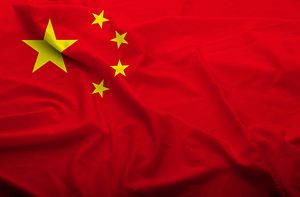This November has been a very busy month for China after three very important multilateral meetings held in China (APEC), Myanmar (East Asia Summit), and Australia (G20). The most important outcome of these three meetings is that China has emerged out of them a true global leader, which will have huge implications for China itself and the future global order. More specifically, China has achieved concrete economic, diplomatic, and strategic goals in the following areas.
First, on the diplomatic front, China has stabilized its relations with Japan after a two-year long “cold spell.” Although the Xi-Abe meeting at APEC was not as fruitful as some have claimed, at least the meeting gives both China and Japan a breathing room for future improvements. This is of critical importance because China cannot afford to have slides in both Sino-Japanese relations and Sino-U.S. relations. Separately, the Xi-Obama meeting was much more fruitful as a number of important agreements have been reached to the surprise of many analysts. In particular, the visa deal (which seems minor) could have long term strategic implications for Sino-U.S. relations, as numerous research have shown that more people-to-people interactions between two countries could lead to better mutual understanding and perceptions.
Second and more importantly, on the economic front China has successfully concluded Free Trade Agreements with two important economies (South Korea and Australia), further demonstrating its economic influence in the world. The FTA deal with Australia is especially important because China will not only import Australian resources and food, but also good quality services such as health care, legal services, and so on. Moreover, the FTA deal with Australia has important strategic implications as it reassures Australia that China’s purpose is not to ask Australia to choose a side between China and the U.S., but to achieve peace and prosperity together. This is partly why China and Australia upgraded their relationship to “comprehensive strategic partners” this time.
A much more ambitious initiative is China’s “one belt, one road” proposal, which it announced at APEC. This proposal could have long-term implications for Asia and beyond. Additionally, China’s vision for the Free Trade Area of the Asia-Pacific (FTAAP) has been embraced by APEC members despite initial resistance from the U.S., whose own Trans-Pacific Partnership (TPP) made comparatively less progress at APEC. Some view the FTAAP and TPP as rivals, and see the support for FTAAP as a victory for Beijing, though in reality the two do not have to be rivals. In principle, China could also join the TPP once conditions are suitable.
Third and most importantly, China has surprised the world by reaching a landmark agreement with the U.S. on climate change that specifies a timetable for emission reduction. This is, by far, the strongest signal that China is ready and willing to lead the world by contributing to global public goods. Already, this landmark deal has put pressures on other countries such as India to come up with their own plans for emission reductions. China also announced that it would establish a South-South Cooperation Fund to help developing countries in fighting climate change.
What does all this mean for China’s global role in the future? As I have argued elsewhere, the world needs China’s leadership and a more assertive and active China will actually be a good thing for other countries. This certainly does not mean that China alone can lead the world. As evidenced by the climate change deal between China and the U.S., the two countries will need to work together.
Of course, as some have already pointed out, economic leadership is not enough if China wants to become a comprehensive global leader. For example, China is not a normative power yet (here and here), but there are signs that at least some Chinese scholars are seriously considering this issue. For example, Tsinghua University’s Yan Xuetong recently proposed a new theory of “moral realism” that might be able to increase China’s normative power. The core of his argument is that China should and can promote “justice and equality” at the global level, and this new idea can challenge the U.S.-dominant idea of “freedom and democracy.”
In sum, what China has demonstrated lately is a unique kind of global leadership, though there is still a long way to go for it to truly become a comprehensive global leader. The international community, thus, should welcome China’s such efforts rather than viewing them with suspicions. Only by working together will the Chinese dream and the APEC dream be achieved.
































